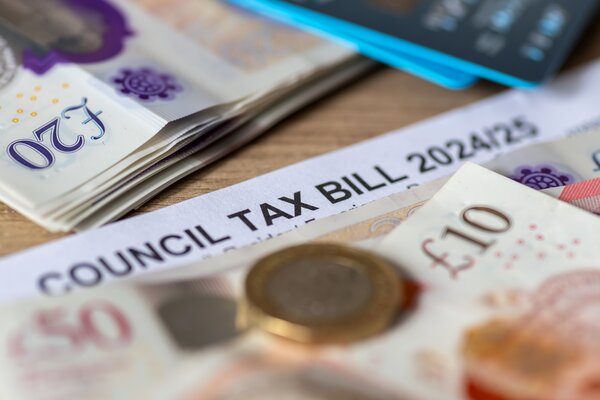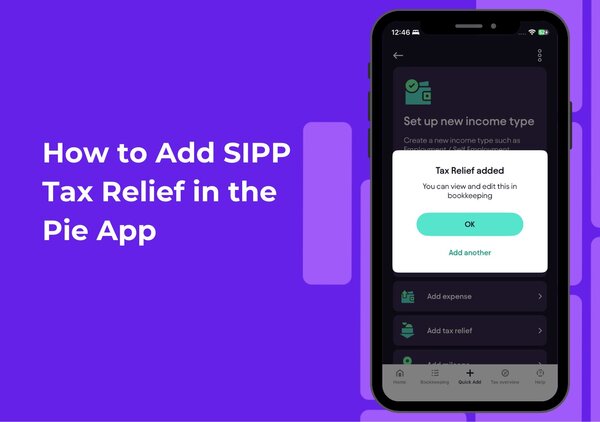Understanding the Non-Resident Personal Allowance

The Non-Resident Personal Allowance is a crucial aspect for individuals who reside outside the UK but have income arising in the UK. Understanding how this allowance operates, who is eligible, and the amount one can claim is vital for non-residents looking to manage their UK tax liabilities more effectively.
In the UK, the personal allowance for income tax is the amount of income one can earn before they start paying tax. For non-residents, there are specific rules and eligibility criteria that need to be met to benefit from this allowance. This article aims to simplify these rules and aid readers in navigating this aspect of UK tax law.
Whether you are a UK citizen living abroad or a foreign national earning in the UK, knowing how to claim the non-resident personal allowance can help you save money and avoid any legal complications.
Eligibility Criteria for Non-Residents
To qualify for the non-resident personal allowance, you must meet certain criteria laid out by HMRC. Firstly, you need to be a citizen or national of an EEA country, the Commonwealth, or Turkey. For citizens of other countries, eligibility might depend on specific treaty agreements with the UK.
Additionally, there are situations where non-residents might be entitled to the personal allowance based on receiving a UK state pension or other UK government pensions. This means it's not just about where you reside but also about your citizenship and the types of income you receive.
The eligibility criteria can be detailed and complex, but understanding them is crucial. Non-residents who qualify can save significantly on their tax bills, making it essential to ensure if you fit these requirements.


Applying for the Allowance
Applying for the non-resident personal allowance involves submitting specific forms to HMRC, primarily the R43 form. This form is used to claim personal allowances and tax repayments if you're an individual who doesn't normally live in the UK.
It's vital to fill out the form accurately, providing all necessary documentation to support your claim, such as proof of income, residency, and citizenship. Incorrect or incomplete information could delay the processing of your claim or result in it being denied.

The personal allowance of £12,570 allows non-residents to shield a notable portion of their income from tax. With an estimated 7.5 million non-residents potentially eligible, understanding and applying for this allowance is more relevant than ever.Key Numbers

Non-residents contribute significantly to the UK's tax revenue, with 10% of total income tax attributable to them. In the last tax year, they contributed an impressive £2.3 billion showing the importance of understanding your tax liabilities and allowances.Current Statistics Overview

Steps to Verify Eligibility
Before claiming the non-resident personal allowance, it's critical to verify your eligibility. Start by understanding your residency status as defined by HMRC. This requires determining whether you are classed as a non-resident based on the Statutory Residence Test.
Next, check the list of countries with which the UK has tax treaties. If you're from an EEA country, the Commonwealth, or Turkey, you likely qualify. Reviewing your types of income is also necessary; certain UK state pensions might make you eligible for the allowance.
Maximising Your Allowance
To make the most of the non-resident personal allowance, it's essential to plan your income sources strategically. Organising your UK and non-UK income efficiently can help maximise your tax savings. Consider timing your income receipts, so they fall within a tax year where you are eligible for the allowance.
Additionally, taking advantage of double taxation agreements can further reduce your tax burden. These agreements prevent you from being taxed twice on the same income, making it crucial to understand their provisions.

Helpful Tips for Non-Residents

Keep Detailed Records Always maintain accurate records of your income, residence status, and all correspondence with HMRC. This will facilitate smoother claims and avoid potential disputes.

Consult a Specialist Tax laws can be complex and change frequently. Consulting with specialists ensures you receive up-to-date and precise advice.

Review Annually Regularly reviewing your tax situation annually helps you stay compliant and make necessary adjustments to your tax strategy if there are any changes in the law or your personal circumstances.

Fun Facts
Despite being non-residents, many individuals are still entitled to the same personal allowance as UK residents, thanks to international agreements and historical ties.
Dealing with Tax Disputes

Sometimes, non-residents may face disputes with HMRC regarding the personal allowance. In such cases, it's vital to remain calm and organised. Start by gathering all relevant documentation that supports your claim, including residency details, income sources, and correspondence with HMRC.
Next, consider seeking professional advice. Engaging with expert tax advisors can provide invaluable assistance. These specialists can guide you through resolving the dispute, ensuring your rights are protected and that you receive the allowance you are entitled to.

Accuracy Matters: Ensure that all your information, forms, and documentation submitted to HMRC are accurate and up to date to avoid unnecessary disputes. Having access to professional advice can streamline the process of dealing with disputes. Professional advisors can offer insights and represent you in communications with HMRC.Resolving Disputes

Keeping up-to-date with changes in tax regulations and policies is crucial for maintaining compliance. Regularly review updates from HMRC and seek advice on how these changes may impact your tax obligations. Staying informed will help you adapt to new requirements and avoid any inadvertent non-compliance. Documentation
Summary
Navigating the non-resident personal allowance can seem overwhelming, but with the right information and tools, it becomes manageable. This guide has walked you through understanding the allowance, eligibility criteria, application process, and maximising your benefits.
Utilising professional tax advice can make this process more seamless, offering expert guidance and personalised assistance. Whether you're resolving disputes or simply organising your tax affairs, expert support is a valuable resource.
Frequently Asked Questions
Am I eligible for the non-resident personal allowance?
Eligibility depends on your citizenship and residency status, as well as the types of income you receive.
How do I apply for the non-resident personal allowance?
You need to submit HMRC forms, mainly the R43.
What does the standard personal allowance cover?
The standard personal allowance for 2023-2024 is £12,570, shielding a significant portion of income from tax for eligible non-residents.
What if I face a dispute with HMRC?
Gather all relevant documentation and seek professional advice immediately.
Can using a tax app simplify the process?
Absolutely. Tax apps with expert support can assist you in understanding your eligibility, filing claims, and resolving disputes.











